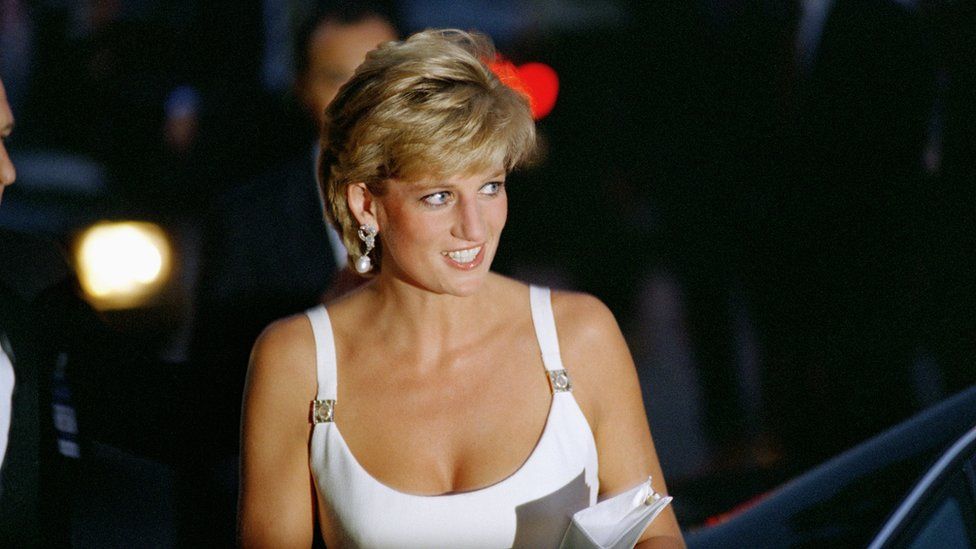
The BBC still has questions to answer after an inquiry into Panorama's Diana interview, a senior Tory MP has said.
The report found Martin Bashir used deception to get the 1995 scoop.
Julian Knight, chairman of a committee that scrutinises the organisation, told the BBC he wanted to know why Bashir was rehired in 2016 and later promoted.
He has also written to the BBC's director general Tim Davie about his concerns ahead of a meeting between the pair on Wednesday.
Speaking on BBC Radio 4's Today programme, the chairman of the House of Commons Digital, Culture, Media and Sport Committee said the BBC should have an "open mind" about the possibility of compensation and how it interacts with whistleblowers "who have clearly faced quite profound consequences due to this fiasco".
It comes as BBC Newsnight has learned the government will give the BBC a chance to make its own changes following the independent inquiry - published on Thursday - by former senior judge Lord Dyson.
The report found Bashir was unreliable and dishonest, and the BBC fell short of its high standards when answering questions about the 1995 interview.
The Duke of Cambridge blamed BBC failings for fuelling his mother's paranoia and worsening his parents' relationship. The Duke of Sussex has also spoken about the hurt caused by the interview.
Boris Johnson said the corporation must make sure nothing like it happens again - and ministers have suggested its governance might need reform.
The BBC insists it has made fundamental changes in governance since the 1990s.
On Saturday, Princess Diana's former personal protection officer, Ken Wharfe, told BBC Radio 4's Today programme that Bashir's "mischievous lies" had contributed to her paranoia and convinced her to do the interview.
Broadcast in November 1995, the interview marked the first time a serving royal had spoken in such candid terms about life in the Royal Family or relationships with other royals. Shortly afterwards, the Queen wrote to Prince Charles and Princess Diana telling them to divorce.
The princess died in 1997, after the car she was in crashed in the Pont de l'Alma tunnel, in Paris.
Since the Dyson report was published, the government is determined to see change at the BBC to ensure that it can never happen again.
Ministers are interested in a proposal by the former BBC chairman Lord Grade to introduce a new independent editorial board that would report to the current management.
The idea is set to be considered next year as part of a mid-term review of the BBC's royal charter. The Royal Charter is an agreement with the government over what the BBC intends to do - including how it is funded and run - and the current charter lasts until 2027.
But Newsnight understands the corporation will be given a chance to introduce the changes itself.
"The BBC may be able to do it themselves," said a government source.
The BBC has defended rehiring Bashir, saying the post was filled after a competitive interview process. Bashir left the BBC earlier this month without a pay-off.
Speaking on Today, the BBC's former chief operating officer Caroline Thomson, said it was crucial the BBC acted quickly to restore trust.
She said whistleblowers in the Diana case should be "dealt with properly and compensated if necessary, properly apologised to" and called for a series of measures to regain trust "among BBC journalists and staff as well as among the public".
On possible changes to BBC governance, she said suggested the introduction of a new non-executive board member with dedicated responsibility for news and editorial matters who could be "the face of transparency" and available to those who would like to whistleblow.
During Princess Diana's interview with Bashir for Panorama, the princess spoke about her unhappy marriage to Prince Charles, and famously said: "There were three of us in this marriage."
The inquiry was commissioned by the BBC last year, after Earl Spencer - Diana's brother - went public with his concerns about the tactics used to get the interview.
On Friday, Mr Johnson said he hoped the BBC would take "every possible step to make sure nothing like this ever happens again".
Meanwhile Ofcom - the media watchdog - said it would be talking to the BBC about what further action might be needed.

What did the inquiry conclude?
Lord Dyson concluded:
- Bashir had faked documents - bank statements designed to suggest Princess Diana was under surveillance - to win the trust of her brother Earl Spencer, and eventually gain access to the princess
- As media interest in the interview increased, the BBC covered up what it had learned about how Bashir secured the interview
- The 1996 internal probe, led by the then director of news Tony Hall - now Lord Hall, who later became the BBC director general - into initial complaints had been "woefully ineffective"
- A note written by Diana said she had no regrets about the broadcast and Bashir did not show her the faked documents. It was taken by the BBC as evidence that the forgery had not influenced her decision to be interviewed - but the inquiry said the BBC should have considered the possibility that the documents were shown to Earl Spencer to influence his sister


- PRINCESS DIANA, MARTIN BASHIR AND THE BBC: Stream the Panorama investigation now on BBC iPlayer

https://news.google.com/__i/rss/rd/articles/CBMiJmh0dHBzOi8vd3d3LmJiYy5jby51ay9uZXdzL3VrLTU3MjA5ODI50gEqaHR0cHM6Ly93d3cuYmJjLmNvLnVrL25ld3MvdWstNTcyMDk4MjkuYW1w?oc=5
2021-05-22 06:00:30Z
52781605605021
Tidak ada komentar:
Posting Komentar